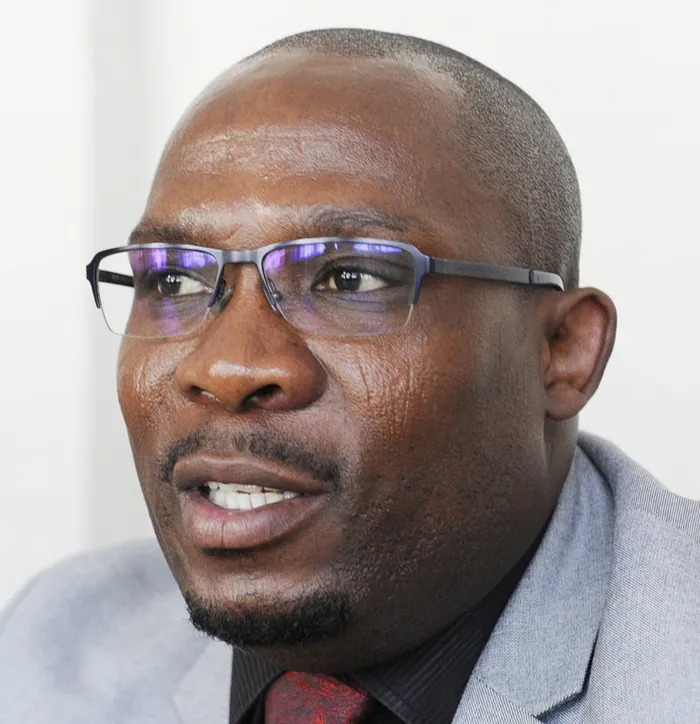
Western Cape, Provincial Minister of Human Settlements Bonginkosi Madikizela speaks about informal settlements prior to the upcoming elections next month. picture: Michael Walker Western Cape, Provincial Minister of Human Settlements Bonginkosi Madikizela speaks about informal settlements prior to the upcoming elections next month. picture: Michael Walker
Helping millions of disadvantaged South Africans gain a foothold in the country’s R6.8 trillion property market is likely to be one of the key objectives of a revised national human settlements policy, due next year.
This is the view of Western Cape MEC of Human Settlements Bonginkosi Madikizela . He said in a briefing yesterday there was unanimity on the need for a “paradigm shift” in housing policy among all political stakeholders in the human settlements sphere.
“We all agree that the current approach is not sustainable,” he said.
The 2017 White Paper, he said, could be expected to signal significant changes in how South Africa pictures, and seeks to solve, what is conventionally thought of as a “housing crisis”.
The policy document would likely emphasise ways to empower individual homeowners to make the most of their asset. Madikizela’s comments follow an intensive dialogue in Stellenbosch last week between provincial and national housing officials, one of a series of dialogues the national department is holding countrywide.
He noted: “All of us agree – human settlements is one department where the various parties are not playing politics, not showing our colours. We deal with real issues, and we draw on our experience as people who have been in this field for some time, and discuss solutions without trying to play politics. Generally, we agree on a number of issues across the board.”
Madikizela said he had long argued that “we should stop looking at housing as a social intervention, but as an economic lever as well”.
“How do we deal with problem of dead capital? We boast as a country that we have built more than four million houses since 1994, but what are we doing to make sure we create wealth out of those properties?
“We are not in the business of just providing four-room houses, but of improving the the living conditions of people.
“And the biggest mistake we have been making is to measure the department by the number of houses we build. We should (rather) measure this department by the extent to which we have managed to change lives of people.”
There were two key considerations: the first was to acknowledge that the idea of “building a house for everyone is a pipe dream”.
The other was to enable poor South Africans to lever advantage from their housing asset. One of the biggest impediments to this was the “pre-emptive right” clause forbidding recipients of government housing to sell the house within eight years.
In the first instance, the legislation had proved “toothless”, as many had gone ahead and sold properties anyway.
For Madikizela, the main problem was that this was preventing poor people from entering the property market legitimately.
“We should empower them to become part of it. If the value of your house appreciates over time, why can’t you trade with it and create wealth for yourself?
“The effect is that we are saying, if you are poor, you must remain in poverty forever.”
He pointed out that the “real estate industry” was worth some R6.8 trillion, but it was a mammoth industry from which the poor were still excluded.
“We are saying, this is a very wealthy industry that in the past was the preserve of the minority. Why should disadvantaged people still be disadvantaged?
“And the White Paper will address this. It is a critical aspect of wealth creation.”
He added: “We are in a wealth-creation business, not a department of free houses.”
Equally important was developing housing instruments for people who earned too much to qualify for a subsidised house, but too little for qualify for a bond.
The multibillion-rand mixed-development project on the old Conradie Hospital site near Pinelands would be an important exemplar for future affordable housing schemes elsewhere in the city and province.
“Making a success of such projects meant embarking on partnerships, with NGOs, the private sector and recipients of housing, too.
“The reality is that we have to embark on whole-of-society approach, instead of looking at the government as Father Christmas where people are just folding their arms and becoming passive recipients.
“We are saying government, the private sector and individuals all have a role.” A pressing objective was to educate people about the difference between incurring debt for dispensable lifestyle expenses and “being involved in debt (such as property) that will create wealth for them”.